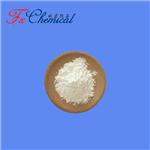[1] BELLINGHAM M C. A Review of the Neural Mechanisms of Action and Clinical Efficiency of Riluzole in Treating Amyotrophic Lateral Sclerosis: What have we Learned in the Last Decade[J]. CNS Neuroscience & Therapeutics, 2011, 17 1: 4-31. DOI:
10.1111/j.1755-5949.2009.00116.x[2] ANDREA URBANI Ottorino B. Riluzole inhibits the persistent sodium current in mammalian CNS neurons[J]. European Journal of Neuroscience, 2001, 12 10: 3567-3574. DOI:
10.1046/j.1460-9568.2000.00242.x[3] MARCOS EMÍLIO DOS SANTOS FRIZZO. Riluzole enhances glutamate uptake in rat astrocyte cultures.[J]. Cellular and Molecular Neurobiology, 2004, 24 1: 123-128. DOI:
10.1023/b:cemn.0000012717.37839.07[4] DOBLE A. The pharmacology and mechanism of action of riluzole.[J]. Neurology, 1996, 47 6 Suppl 4: S233-41. DOI:
10.1212/wnl.47.6\_suppl\_4.233s[5] CHRISTOPHER PITTENGER. Riluzole in the treatment of mood and anxiety disorders.[J]. CNS drugs, 2008, 22 9: 761-786. DOI:
10.2165/00023210-200822090-00004[6] JIN NAMKOONG. Metabotropic glutamate receptor 1 and glutamate signaling in human melanoma.[J]. Cancer research, 2007, 67 5: 2298-2305. DOI:
10.1158/0008-5472.can-06-3665[7] CHI ZHANG. Anti-cancer effect of metabotropic glutamate receptor 1 inhibition in human glioma U87 cells: involvement of PI3K/Akt/mTOR pathway.[J]. Cellular Physiology and Biochemistry, 2015: 419-432. DOI:
10.1159/000369707[8] SWETLANA SPERLING. Riluzole: a potential therapeutic intervention in human brain tumor stem-like cells.[J]. Oncotarget, 2017: 96697-96709. DOI:
10.18632/oncotarget.18043


